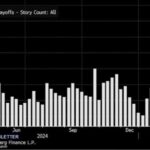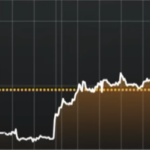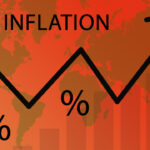The American president changed his approach to the stock market in his second term. To the extent that he paid homage to Wall Street during his first term, he recently said in an interview for Fox News that he needs to build a strong country without looking at the stock market. The average American cares because retirement funds are operating on risky assets and many small investors are putting their savings into the stock market instead of keeping their money in low-interest accounts like Germans or most Europeans.
Trump believes that we are now facing a transition that will eventually lead to the return of wealth to America. Incoming Secretary of the Treasury Scott Bessent later added fuel to the fire when he said during his interview that if anyone thinks Trump will change his policies to stop the stock market decline, they will be disappointed. Bessent is of the opinion that we are currently in a “detox period” – a transition from reliance on public spending to private spending – and any negative market behavior is the legacy of Joe Biden and his policies to stimulate the economy with debt and deficits.
The new managers on the Potomac point out that the indicators are falling and Wall Street appears to be heading for a deeper correction.
What is also falling are the indicators of economic activity: the ISM Manufacturing (PMI) (activity in the US manufacturing sector), while ISM Manufacturing Price (change in the prices manufacturers pay for raw materials and other materials for production) is rising significantly. In the case of the former, it was above 50 points, i.e. above the threshold above which the economy is assumed to be developing, but well below the previous value and also below forecasts. In the case of the latter, it may be a return of higher inflation. In addition, orders in the US manufacturing sector are falling. Unemployment is also rising – Trump’s (or Musk’s) redundancies in the public sector are important here.

As a result, Americans are less willing to spend their money, which means that domestic demand, one of the main drivers of the US economy, is falling. After all, consumer spending accounts for 68% of US GDP!

Can such a situation suit the Trump administration? Paradoxically: Yes!
It is well known that the Fed is maintaining high interest rates (4.5%) in response to persistent inflation of around 3% (target is 2%). High interest rates lead to higher bond yields. Considering that the US needs to refinance a large portion of its debt this year (a good 25% of the total), it would be best for it to do so at the lowest price – i.e. the lowest interest rate on bonds. It is well known that it will not be easy to get the Fed to lower interest rates in the face of increased inflation, so a recession is the best solution. With limited economic growth and demand (see above), inflation may ease considerably and the associated layoffs could prompt the Fed to cut rates to stimulate economic growth.
Hence the tariffs, hence the trade wars – the aim is to bring production back to America, to increase the attractiveness of US products for domestic consumers and… to initiate a new, better period for the American economy after the recession.


















